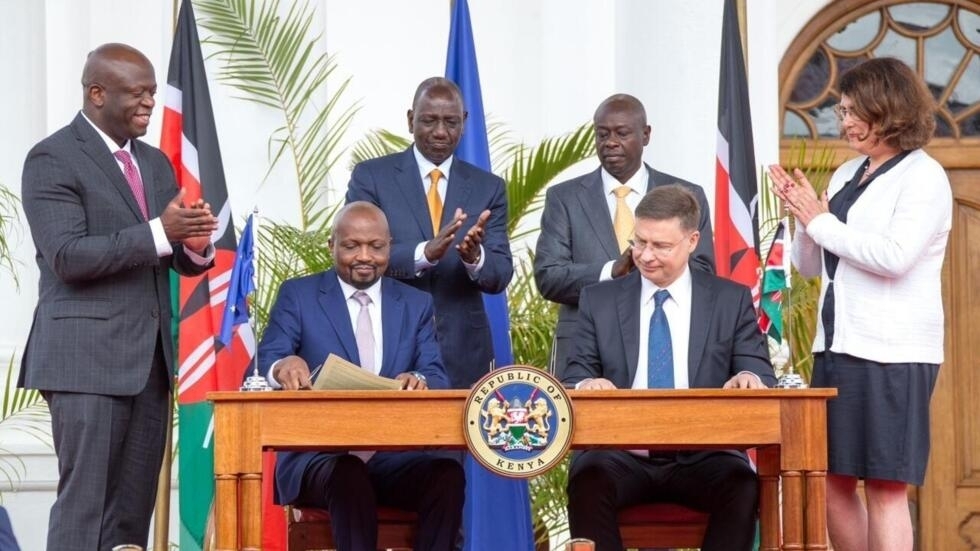In a historic move on Monday, Kenya and the European Union officially sealed a comprehensive trade deal aimed at boosting commerce between the two regions. The Economic Partnership Agreement, the first of its kind between the EU and an African nation since 2016, solidifies the commitment to enhance economic ties.
The agreement provides Kenya with duty-free and quota-free access to the EU, its largest export market, while European goods will experience gradual tariff reductions. The pact, a significant development since China’s infrastructure investments in Africa, underscores Brussels’ efforts to strengthen economic relationships with the continent.
Kenyan President William Ruto, speaking at the ceremony attended by European Commission chief Ursula von der Leyen in Nairobi, expressed optimism about the transformative potential of the partnership. Ruto emphasized, “Although today represents a moment of monumental promise, it is also the beginning of a historic partnership for historic transformation.”
The core focus of the agreement, according to Ruto, is to channel tangible benefits to ordinary citizens. Von der Leyen echoed this sentiment, calling it a “win-win situation on both sides” and urging other East African nations to consider joining the pact.
Von der Leyen emphasized the need to concentrate efforts on the implementation phase, stating, “We are opening a new chapter in our very strong relationship.”
Both the Kenyan and European parliaments must ratify the deal before it becomes operational. The EU highlighted the significance of the accord, describing it as the “most ambitious economic partnership” with a developing country.
The agreement encompasses commitments to sustainable development, including provisions for labor rights and environmental protection. Valdis Dombrovskis, EU’s trade commissioner, hailed the deal as a “historic agreement” unlocking new avenues for cooperation and mutual benefit.
Kenya’s strategic position as an economic powerhouse in East Africa has drawn international attention, especially amid diplomatic maneuvers by Russia and China on the continent. The EU’s proactive engagement aims to counterbalance China’s Belt and Road program, with increased investments in Kenya through its Global Gateway initiative.
Kenya’s vibrant exports to the EU, accounting for over 20 percent of the nation’s total exports, include agricultural products such as vegetables, fruits, tea, and coffee. In 2022, bilateral trade between the markets reached 3.3 billion euros ($3.6 billion), marking a 27 percent increase since 2018.
The trade deal is the result of a decade-long negotiation process between the EU and the East African Community (EAC). While Kenya initially signed an agreement with the EU in 2016 alongside the EAC, internal disagreements within the EAC led Kenya to pursue its independent deal.
President Ruto extended an invitation to EAC partners, stating, “This agreement leaves the door wide open for our EAC partners to join so that together as a region we can benefit.”

